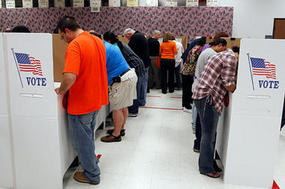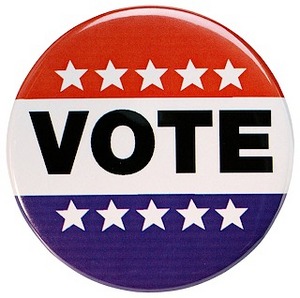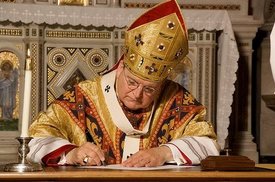Get out and vote.
Tag: voting
Everyone has the right to vote, NOT to vote is a grave sin of omission
 I once said to someone –I can’t recall who it was now– that for a US citizen NOT to vote is a grave error in being a good citizen, and a good Catholic. Sinful, in fact. AND at this this time I had no idea what a previous Pope held to be true.
I once said to someone –I can’t recall who it was now– that for a US citizen NOT to vote is a grave error in being a good citizen, and a good Catholic. Sinful, in fact. AND at this this time I had no idea what a previous Pope held to be true.
There is a heavy responsibility on everyone, man or woman, who has the right to vote, especially when the interests of religion are at stake; abstention in this case is in itself, it should be thoroughly understood, a grave and fatal sin of omission. On the contrary, to exercise, and exercise well, one’s right to vote is to work effectively for the true good of the people, as loyal defenders of the cause of God and of the Church.
Voices without a vote
As a matter of good citizenship, as a concern for faith and public order, for faith and reason, you and I need to vote according to a fully formed conscience.
Vote: it’s necessary for Catholics
Just back from Mass for the Faithful Departed and from voting.
Have you prayed and voted???
Catholics vote because it is “… for the promotion of the common
good” (Benedict XVI)
Voting is a “… serious moral obligation…” and Catholics “…
can never vote for someone who favors absolutely what’s called the ‘right to
choice'” (Abp R. Burke)
Understanding Catholic faith & public life, no split necessary
Come to Jesus. There is no sensible reason why there has to be split in thinking and acting when it comes to saying you believe in Christ and follow His Church and being a serious voter or a politician. Today we hear politicians and sadly some clergymen, are not steadfast to the life and teaching of Jesus Christ. They are often working out of a pretext of religion without the substance of the Faith.


